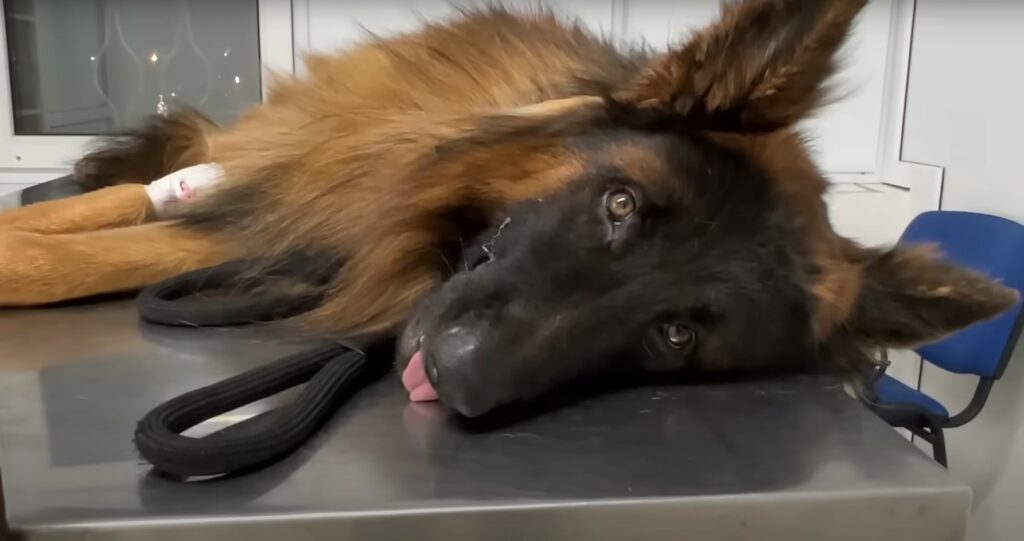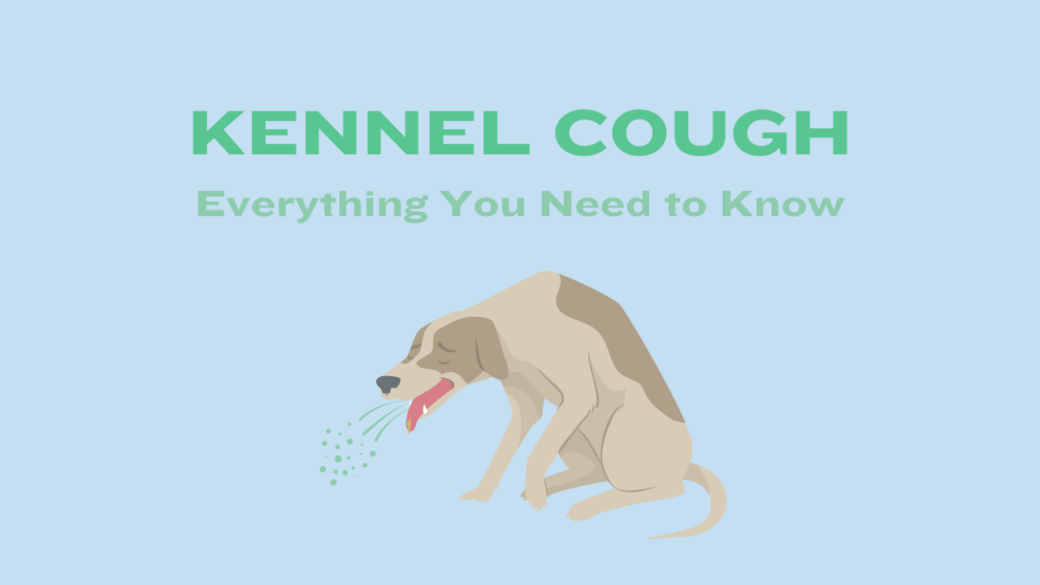Although dogs can sometimes cough when they are excited, when a dog develops a persistent cough, the culprit is usually one condition – kennel cough. This highly contagious cough was originally associated with boarding kennels, but dogs can pick up this disease anywhere they are in close proximity to another dog, such as animal shelters and vet hospitals.
Due to how easily it spreads, dog owners must become knowledgeable about the information surrounding kennel cough. It is important to understand what this condition is, the symptoms, the treatment, and the prevention; these are all aspects this article will explore.
Table of Contents
What is Kennel Cough?
Canine infectious respiratory disease (CIRD) or canine infectious tracheobronchitis (ITB), otherwise known as kennel cough, is a respiratory infection that can cause a dry, hacking cough in dogs. It is caused by several bacteria, like Bordetella bronchiseptica, which is the most common cause, and viruses, such as canine parainfluenza. As the signs and treatment are the same in most cases, these conditions have been grouped together as one – kennel cough.
Much like a human cold, the viruses and bacteria that can cause kennel cough are very easy to pick up. Despite its name, catching kennel cough is not limited to boarding kennels; it can be spread wherever there is or has been an infected dog.
What are the Symptoms of Kennel Cough?
Kennel cough symptoms usually begin within three to ten days of exposure. The best-known symptom of kennel cough is a harsh cough that sounds similar to the honking noise geese make. Retching might also occur due to the forcefulness of the cough. This cough can last for several weeks; some dogs’ immune systems will be able to fight off the condition, while others will require veterinary treatment to recover.
There are other symptoms that dogs might experience, depending on the severity of the kennel cough. You might find your dog has a mild fever and runny nose, or it might be more tired than usual or uninterested in food.
And although it is extremely rare, this disease can worsen into pneumonia.
How is Kennel Cough Spread?
The bacteria and viruses that cause kennel cough can be spread through direct contact with an infected dog, in the air, or by touching a contaminated surface, like toys or food bowls. This is why the risk is greater in areas with many dogs, such as in boarding kennels, dog parks, or dog shows.
Dogs catch kennel cough when they inhale the bacteria and/or viruses, which causes inflammation of the larynx and trachea. Factors that make catching kennel cough more likely are:
- Cold temperatures
- Crowded or poorly ventilated conditions
- Exposure to cigarette smoke or dust
- Groups of dogs socialising
- Stress
If your dog is in the vet’s waiting room, take care to avoid other dogs that might also be there and the communal water bowl. These dogs could carry the disease, spreading it to your dog because of the close proximity. Similarly, check with dog walkers if they require proof of vaccination, especially if they offer group walking sessions.
Can Cats Catch Kennel Cough?
Although kennel cough primarily affects dogs, cats can also catch it. This is more likely to happen when multiple cats are housed closely together, such as in a cattery.
Can Humans Catch Kennel Cough?
There is a risk of humans catching kennel cough from infected dogs and cats, but this is a very small risk. Symptoms of kennel cough in humans include a fever, frequent coughing, and a sore throat.
How is Kennel Cough Treated?
Most cases only show mild symptoms and do not require veterinary treatment, but if the dog is vulnerable to the condition, you should contact your vet for a proper diagnosis. If your dog is young, old, or has a known respiratory condition, you should get them checked by a vet if they display kennel cough symptoms.
Once the dog has been officially diagnosed with kennel cough, the treatment will depend on the severity of the condition. Dogs with only mild symptoms will require supportive care, including proper hydration, nutrition, and plenty of rest. If they have a severe cough, the vet might prescribe cough suppressants to help reduce the frequency of coughing.
As kennel cough is highly infectious, dogs suffering from the condition should be kept away from other dogs for two to three weeks. A full recovery is expected within three weeks for most dogs.

If the dog has severe kennel cough, the treatment will be much more extensive to support the dog’s immune system and reduce the risk of or treat pneumonia. Badly affected dogs will require hospitalisation, which includes receiving antibiotics, IV fluids, and oxygen therapy.
Can Kennel Cough Be Prevented?
Although kennel cough cannot be prevented completely, prevention methods are the best way to reduce your dog’s risk of catching the disease. The best method of prevention is the kennel cough vaccination.
What is the Kennel Cough Vaccine?
The kennel cough vaccination, which is also known as the Bordetella vaccination, is a separate vaccine from the ones administered annually. Annual boosters can help to immunise against the canine parainfluenza virus, which can also cause kennel cough, but the Bordetella vaccine provides immunisation against the bacteria called Bordetella bronchiseptica.
Most boarding kennels only accept dogs who have been given the Bordetella vaccine, as kennel cough is highly contagious. This live vaccine can be administered up the dog’s nose, or there is an injectable version. Dogs that receive the intranasal vaccine are more likely to experience cold or flu-like side effects, but these will only last a few days after vaccination.
Unfortunately, the vaccine is not complete protection against kennel cough, but it will reduce the severity of symptoms if the dog catches the infectious condition.
Does a Dog Need to Be Vaccinated Against Kennel Cough?
As dogs are unlikely to become very unwell from this condition, the kennel cough vaccination is not considered a “core” vaccine. However, due to kennel cough being highly contagious, many services and places where dogs mingle, such as doggy daycares, dog parks, and groomers, will require dogs to be vaccinated.

Some dogs are more at risk of severe kennel cough; young puppies, seniors, and dogs with known respiratory conditions should be vaccinated to protect them. The vaccine will not offer complete protection, but it does reduce the risk of infection. This means that dogs who catch kennel cough after receiving the vaccine will experience much milder symptoms and recover quicker.
When Should Dogs Be Vaccinated?
Dogs can receive the kennel cough vaccine annually, but it is essential to ensure your dog is vaccinated against kennel cough if it regularly mingles with other dogs. If you use a dog walker or doggy daycare service, or if the dog is staying in a boarding kennel facility, there is a greater risk of catching kennel cough. Due to the increased spread, most boarding facilities require dogs to be vaccinated against kennel cough at least two weeks prior to boarding.
If anyone in the household is immunocompromised, including pregnant women and individuals undergoing treatment like chemotherapy, the vaccine should not be prescribed.
Does the Vaccine Have Side Effects or Risks?
While most dogs will not experience long-term side effects of the Bordetella vaccine, they might have mild symptoms for a few days following the vaccine. The adverse reactions can include coughing, sneezing, and discharge from the eyes or nose. These symptoms should subside within a few days.
However, in extremely rare cases, it is possible for dogs to have an allergic reaction to the vaccine. Within a few minutes or hours of receiving the vaccination, dogs that have an anaphylactic response will experience breathing issues, diarrhoea, hives, itchiness, swelling, and/or vomiting. If your dog shows any of these symptoms, contact your vet as soon as possible.
Can the Kennel Cough Vaccination Affect Humans?
As previously mentioned, the kennel cough vaccination should not be given if there are young children, pregnant women, or immunocompromised individuals in the household. This is due to the vaccine being a live vaccine, and there is a low risk of transmission.
To Sum Up
Despite kennel cough being a contagious condition, dogs will rarely develop severe symptoms from the disease. Although this can put their minds at ease, dog owners should still take precautions to limit their pets’ exposure to kennel cough. The best prevention of kennel cough is the vaccine, and this should be administered every year unless the vet says otherwise.
However, the vaccination does not offer complete protection, but it will help keep symptoms mild if the dog catches kennel cough after receiving the vaccine. Most symptoms are similar to those of a common cold, but immunocompromised dogs are more at risk of severe symptoms.
To limit the risk of this infectious condition, you should get your dog vaccinated regularly.
Disclaimer: This article is for informational purposes only and should not be used as a substitute for professional veterinary advice.

